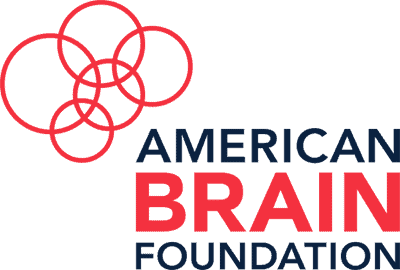Clinical Advisory Board

Tom Frazier, II, Ph.D

Elizabeth Berry-Kravis, MD, Ph.D
CureSHANK
Elizabeth Berry-Kravis, MD, Ph.D
Elizabeth Berry-Kravis MD, PhD is a Professor of Pediatrics, Neurological Sciences, and Biochemistry at Rush University Medical Center in Chicago. She established the Fragile X Clinic and Research Program in 1991, through which she provides care to over 600 patients with fragile X syndrome (FXS). She has studied medical issues, epilepsy and psychopharmacology in FXS, and has been a leader in translational research in FXS including development of outcome measures and biomarkers, natural history studies, newborn screening, and particularly clinical trials of new targeted treatments in FXS, for which she has been PI or Co-PI of 16 trials, both industry and investigator sponsored. Her laboratory studies the cellular role of fragile X mental retardation protein (FMRP), relationship between FMRP and clinical function, and optimization of genetic testing methods. More recently she has expanded clinical and translational work to other neurodevelopmental disorders including autism spectrum disorders, and single gene models of ASD in addition to FXS, including Phelan McDermid syndrome, Rett syndrome and Angelman syndrome. She also is working on translational research in rare neurogenetic disorders including Niemann-Pick type C, Battens disease, pantothenate kinase-associated neurodegeneration, and creatine transporter deficiency. She is on Advisory and/or Review Boards for the FRAXA Research Foundation and the National Fragile X Foundation, the Phelan McDermid Syndrome Foundation and Angelman Syndrome Foundation. She has received the NFXF Jarrett Cole Clinical Award, FRAXA Champion Award, NFXF William and Enid Rosen Research Award, March of Dimes Jonas Salk Research Award, American Academy of Neurology Sidney Carter Award in Child Neurology and John Merck Fund Sparkplug Award.

Inglo Helbig
Ingo Helbig, MD, is a pediatric neurologist in the Division of Neurology at Children’s Hospital of Philadelphia. Dr. Helbig went to medical school in Heidelberg and Mannheim, Germany, and Lexington, Kentucky, USA. He trained at the Epilepsy Research Centre, Melbourne, Australia, and was Assistant Professor at the Department of Neuropediatics, Kiel, Germany. Between 2011 and 2015, he co-headed the EuroEPINOMICS-RES Consortium, the European counterpart of the NIH-funded Epi4K consortium involved in collaborative genomic studies to identify genes for human epilepsies. He was part of the Genetics Commission of the International League Against Epilepsy (ILAE) from 2014-2017 and currently leads the Epilepsiome Task Force of the ILAE Genetics Commission, which aims at increasing genetic literacy in the epilepsy community. After heading the epilepsy genetics group at the University of Kiel, Germany, he transferred to the Children’s Hospital of Philadelphia (CHOP) in 2014 and became faculty in the Division of Neurology in July 2017. The main focus of his prior work was to understand how genetic changes lead to severe epilepsies in both children and adults, contributing to several new gene findings in the field in the last seven years including GRIN2A, CHD2, KCNA2, HCN1, and DNM1. Dr. Helbig uses clinical and research expertise to curate epilepsy-related genes in variants within his leadership role of the Epilepsy Clinical Domain Working Group.

Julie Eisengart, Ph.D, LP

Dr. Yuri Zarate
Dr. Zarate obtained his Medical degree from the Universidad Industrial de Santander in Colombia. He completed a residency in Pediatric Human Genetics at Cincinnati Children’s Hospital. After working at the Greenwood Genetic Center as an Assistant Clinical Geneticist, Dr. Zarate joined Arkansas Children’s Hospital in 2013 as faculty. Dr. Zarate participates in the evaluation and treatment of individuals of all ages with birth defects, intellectual disabilities and other genetic disorders. He is also involved with teaching medical students, residents, and genetic counseling students. Areas of particular interest include connective tissue disorders and craniofacial anomalies. Dr. Zarate is certified by the American Board of Medical Genetics (2009) and the American Board of Pediatrics (2008). He is a Fellow of the American College of Medical Genetics and an active member of the American Society of Human Genetics, the American Medical Association, and the American Academy of Pediatrics.

SIDDHARTH (SID) SRIVASTAVA, MD
SETBP1 Society
Siddharth Srivastava, MD
I am a pediatric neurologist at Boston Children’s Hospital specializing in neurogenetics. My research involves studying different genetic causes of neurodevelopmental presentations — such as autism, intellectual disability, cerebral palsy, and developmental regression — using the multimodal approach of gene discovery, cognitive/behavioral phenotyping, and biomarker identification. This approach not only pinpoints possible mechanisms of disease but also delineates appropriate targets for therapy in future clinical trials aimed at improving neurodevelopmental outcomes in these disorders. Most recently, my work has focused on determining neuroimaging correlates of cognition and behavior in Phelan-McDermid Syndrome and Tuberous Sclerosis Complex, two developmental synaptopathies associated with a high prevalence of autism and intellectual disability. At Boston Children’s Hospital, I provide care to children in a variety of neurodevelopmental and neurogenetics clinics. I take part in the Developmental Neurogenetics Program, which specializes in the diagnosis and management of genetic disorders associated with neurodevelopmental disabilities. Within this program, I help see patients in our multidisciplinary Phelan-McDermid Syndrome Clinic and PTEN Clinic, whose goals include optimizing long-term neurodevelopmental outcomes and coordinating specialty care across multiple disciplines. I also evaluate and treat patients in our Cerebral Palsy Diagnostic Program, which strives to diagnose genetic disorders presenting as cerebral palsy. Dr. Srivastava serves as an expert for the Department of Neurology for Boston Children’s Hospital Precision Medicine Service.

Kim Goodspeed, MD
Kim Goodspeed is a pediatric neurologist. She is an Assistant Professor and the Dedman Family Scholar in Clinical Care in the Department of Pediatrics at UTSW. Dr. Goodspeed went to Medical School at UT Health Science Center at Houston, and completed residencies in Pediatrics and Neurodevelopmental Disabilities at UT Southwestern/Children’s Medical Center. Dr. Goodspeed has won many awards. She has published studies on Pitt-Hopkins and is actively working on studies of SLC6A1-related disorders.

Dr. Jennifer Bain
Yellow Brick Road Foundation
Dr. Jennifer Bain

Jane Larkindale, DPhil
Jane Larkindale, DPhil, is the Executive Director for both the Duchenne Regulatory Sciences Consortium (D-RSC) and the Rare Disease Cures Accelerator-Data and Analytics Platform (RDCA-DAP) at the Critical Path Institute in Tucson, Arizona. Larkindale was a key leader in launching RDCA-DAP in September 2019. She launched D-RSC in 2005 and has been its leader since inception. She is a molecular biologist by training, having completed her D.Phil. (Ph.D.) in the department of plant sciences at Oxford University in 2001, which she attended on a Rhodes Scholarship. In the laboratory, she did research in areas as diverse as molecular biology, biochemistry, genomics, plant science, medical physics, marine biology, and industrial chemistry. In the course of this research, she published numerous original research papers and review articles in several disciplines. Her experience in drug development and neuromuscular diseases started at the Muscular Dystrophy Association, an international non-profit covering over forty neuromuscular diseases, where she ended as Vice President for Research. Dr. Larkindale was instrumental in the start-up of MDA Venture Philanthropy (MDA’s drug development arm), which invested in 21 drug development projects, of which 10 entered clinical trials, and several of which have been licensed by large pharmaceutical companies. After leaving MDA, Dr. Larkindale started a consulting company in the area of drug development for rare neuromuscular diseases and worked for the Friedreich’s Ataxia Research Alliance, developing biomarker and patient reported outcomes programs and working on a new patient registry.

Bryce Reeve, PHD
Dr. Reeve is a Professor of Population Health Sciences and Pediatrics within the Duke University School of Medicine where he directs the Center for Health Measurement. He is an internationally-recognized psychometrician whose work focuses on the quality of care for patients of all ages with chronic diseases. Dr. Reeve’s areas of expertise are in developing patient-reported questionnaires using qualitative and quantitative methodologies and the integration of patient-reported data in research and healthcare delivery to inform decision-making. From 2000 to 2010, Dr. Reeve served as Program Director of the NIH’s National Cancer Institute where he was integral in developing their Patient-Reported Outcomes Measurement Information System (PROMIS) initiative and oversaw a program of health-related quality of life research. From 2010-2017, he served as Professor of Health Policy and Management at the Gillings School of Public Health at the University of North Carolina at Chapel Hill where he successfully secured NIH and PCORI funding to design and validate PRO measures. Currently, Dr. Reeve is PI on an NIH-funded longitudinal study to validate PROMIS measures in children with sickle cell disease, asthma, nephrotic syndrome and cancer and another for children with cancer, rheumatic disease, or inflammatory bowel disease. Also, he is PI on a NIH-funded study to design and validate a system (i.e., PRO-CTCAE) for children to self-report symptom toxicities experienced while undergoing cancer treatment.











